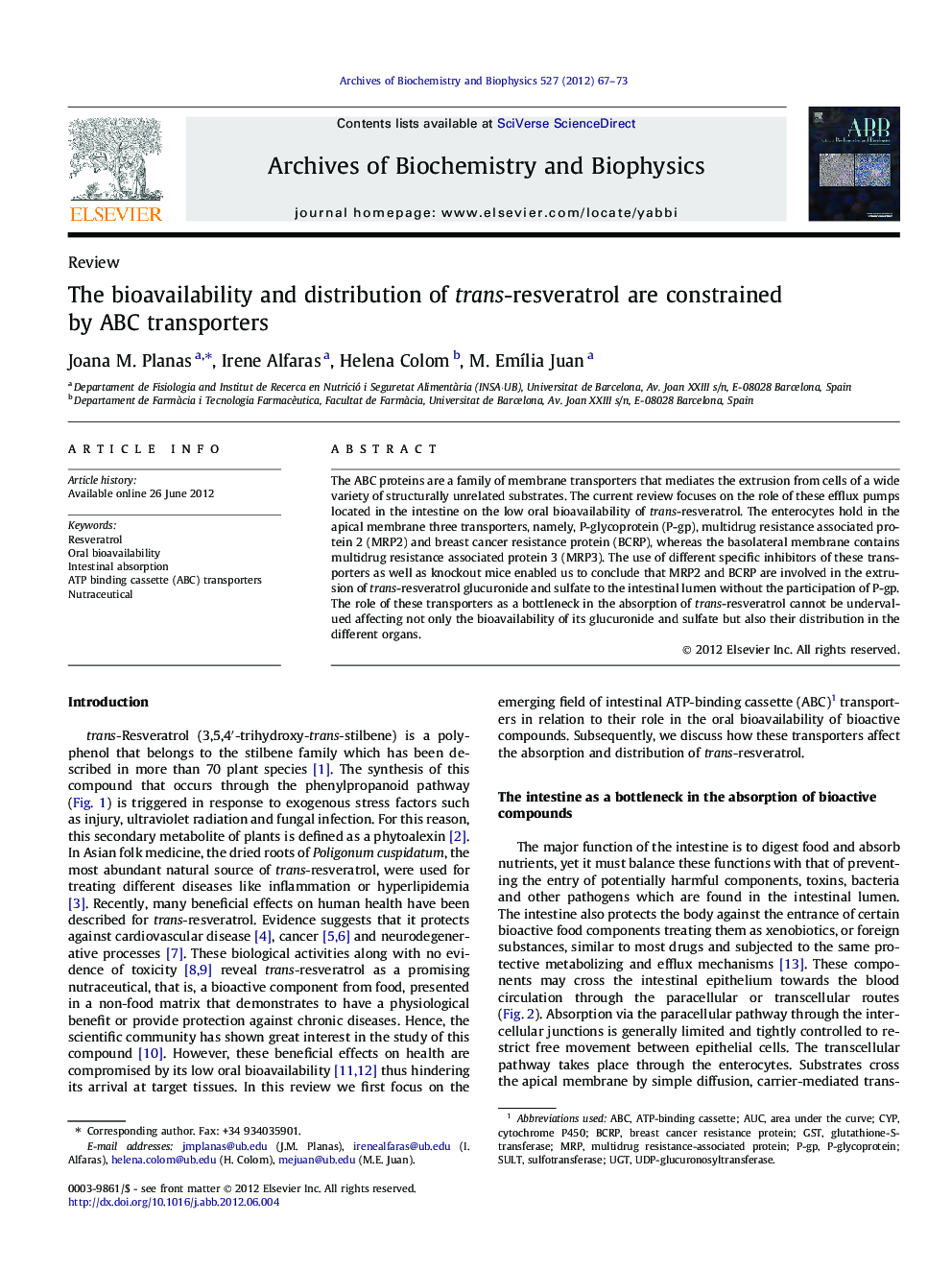| Article ID | Journal | Published Year | Pages | File Type |
|---|---|---|---|---|
| 1925455 | Archives of Biochemistry and Biophysics | 2012 | 7 Pages |
The ABC proteins are a family of membrane transporters that mediates the extrusion from cells of a wide variety of structurally unrelated substrates. The current review focuses on the role of these efflux pumps located in the intestine on the low oral bioavailability of trans-resveratrol. The enterocytes hold in the apical membrane three transporters, namely, P-glycoprotein (P-gp), multidrug resistance associated protein 2 (MRP2) and breast cancer resistance protein (BCRP), whereas the basolateral membrane contains multidrug resistance associated protein 3 (MRP3). The use of different specific inhibitors of these transporters as well as knockout mice enabled us to conclude that MRP2 and BCRP are involved in the extrusion of trans-resveratrol glucuronide and sulfate to the intestinal lumen without the participation of P-gp. The role of these transporters as a bottleneck in the absorption of trans-resveratrol cannot be undervalued affecting not only the bioavailability of its glucuronide and sulfate but also their distribution in the different organs.
Graphical abstractFigure optionsDownload full-size imageDownload high-quality image (112 K)Download as PowerPoint slideHighlights► Intestinal ABC transporters constrain the oral bioavailability of resveratrol. ► Resveratrol plasmatic concentrations are limited by intestinal metabolism. ► MPR2 and BCRP actively efflux glucuronide and sulfate towards intestinal lumen. ► Neither resveratrol nor its conjugates are transported by P-gp. ► The intestine acts as a bottleneck in the absorption of resveratrol.
